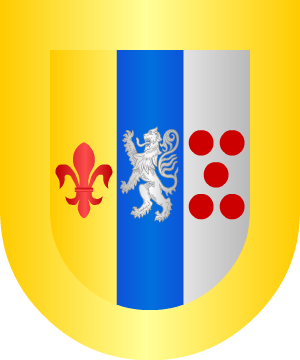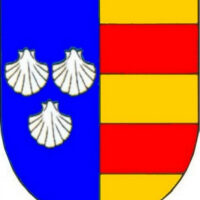Welcome to Quintero Meaning Unveiled: Exploring the History and Significance of the Name. In this article, we will delve into the fascinating history and etymology of the surname Quintero. From one of the original founders of Los Angeles to the meaning behind the name itself, we will explore the various facets of this intriguing surname. Join us on this journey as we uncover the hidden stories and uncover the significance of the Quintero name. Whether you are a Quintero yourself or simply curious about the origins of surnames, this article is sure to be an enlightening read. So, let’s begin our exploration of the rich history of the Quintero name.
Contenido
Luis Quintero – An Original Founder of Los Angeles

Luis Quintero was a major force in the founding of the City of Los Angeles, and his impact is still felt today. As one of the original founders, Quintero played a critical role in establishing the city, which has since become a major center of culture and commerce. His contributions to the city are immense, and his name is an integral part of Los Angeles history.
The etymology of the Quintero surname is rich in cultural significance. It is believed to be derived from the Spanish word quintana, which refers to a fifth. It is thought that a quintero was a tenant of quintas, or haciendas, and was obliged to give up one-fifth of the land’s yield as rent. This historical context sheds light on the cultural importance of the name and how it became associated with the Quintero family.
The Quintero last name is an intriguing topic, and Luis Quintero’s story is a prime example of how the name has been linked to influential figures in history. Whether you’re interested in genealogy, history, or simply want to learn more about this captivating surname, the story of Luis Quintero and his contributions to the City of Los Angeles is sure to fascinate.
The Etymology of Quintero
The origins of the Quintero surname are captivating and boast a vibrant background. This name is of Spanish descent and is derived from the Latin term quintus meaning a fifth. This can be attributed to individuals who were renters of quintas, or haciendas, and were obligated to pay a fifth of the land’s yield as rent. It is possible that some of these people may have emigrated to Italy, particularly the province of Messina. Nonetheless, the majority of Quinteros are located in Spain and Latin America, particularly in Mexico and Colombia. Furthermore, the surname is common in the United States, particularly in California where one of the founders of Los Angeles, Luis Quintero, was a part of the Quintero family.
The Quintero family crest and coat of arms are also significant when examining the history and importance of the name. Quintero’s coat of arms consists of two parts or “quarterings.” The first quartering is a red fleur-de-lis on a white background, while the second quartering shows a silver lion rampant on a blue background with five red roundels arranged in a saltire cross. The border surrounding the second quartering is gold
Quintero Family Origins
Tracing the ancestry of the Quintero family yields a captivating narrative that reveals the evolution of Spanish language and culture. Since then, the Quintero family has proliferated, spanned continents, and made noteworthy contributions to the world.
The interpretation of the Quintero name is contested, with some suggesting it is derived from a person who rented quintas and paid one-fifth of the lands produce as rent, while others associate it with the number five. This might be in reference to the number of siblings, children, or generations in the family. Whatever the meaning, the Quintero name stands as a tribute to their legacy and impact to society.
The Quintero crest and coat of arms is a testament to the family’s cultural heritage. This emblem is a reminder of the Quintero family’s indomitable spirit, bravery, and perseverance, and serves as a reminder of their history and influence.
The Quintero family has a long and rich heritage that has been passed down for generations. From the meaning behind their name to their crest and coat of arms, the Quintero family continues to inspire future generations with their legacy and accomplishments.
Quintero Family Crest and Coat of Arms

The family crest and coat of arms of the Quinteros have long held a significant value and history. They are designed to embody the identity and values of the family, as well as their accomplishments and successes. The crest and coat of arms usually include symbolic colors, images, and objects that have special relevance to the family and their traditions. For the Quinteros, their crest and coat of arms are a source of pride and are a reminder of the family’s legacy.
The crest and coat of arms of the Quintero family are full of symbolism and meaning. The crest is often comprised of a shield with various symbols that may include animals, plants, and objects that have some relevance to the family’s history.
Quintero’s coat of arms consists of two parts or “quarterings.” The first quartering depicts a red fleur-de-lis on a white background, known as gules in heraldry. The second quartering shows a silver (or white) lion rampant on a blue (or azure) background, surrounded by five red roundels arranged in the shape of a saltire cross. The lion represents strength and courage, while the roundels symbolize loyalty and devotion. The border surrounding the second quartering is gold, which is often associated with wealth and prestige in heraldry. Overall, Quintero’s coat of arms is a striking and colorful design that reflects the family’s heritage and value
Today, the crest and coat of arms of the Quintero family is a symbol of their past, present, and future. It is a reminder of their roots in the community and culture, and is a source of pride and inspiration for many members of the family. The crest and coat of arms is a tangible representation of the family’s heritage and legacy, and is a powerful reminder of their unique identity.
Notable People with the Quintero Surname
José Quintero is an iconic figure in the history of theatre, renowned for his work as a Broadway director. Born in Panama in 1924, he won a Tony Award in 1974 for his direction of Eugene O’Neill’s Long Day’s Journey Into Night. Quintero’s remarkable career also included the Tony-winning production of Tennessee Williams’ The Night of the Iguana in 1962. His remarkable contributions to the theatre of the 20th century continue to inspire actors and directors to this day.
Hector Quintero is another important figure with the Quintero surname. Born in 1947, the Cuban playwright and screenwriter is particularly well-known for his play Los Siete Contra Tebas (The Seven Against Thebes). The tragic story, based on Aeschylus’ ancient Greek classic, examines themes of power, loyalty, and deception.
Quintero in Popular Culture
The surname Quintero has featured prominently in popular culture:
The Alvarez Quintero brothers, Joaquín and Serafín, were two outstanding Spanish playwrights born in Utrera, province of Seville, in the late 19th century. Together, they wrote more than 200 theatrical works that were performed in Spain and other countries, becoming the most popular playwrights of the first half of the 20th century in Spain.
The works of the Alvarez Quintero brothers are characterized by being light and costumbrist comedies that reflect the daily life and customs of Andalusia during their time. Many of their works have a sentimental and melancholic tone and focus on themes such as love, friendship, and family.
Quintero Name Meaning in Other Languages
Investigating the variations of the name across different languages and cultures can provide a deeper insight into its history and meaning. From Spanish, the most commonly associated language, to French, Portuguese, and Italian, the name can be found in many forms. In French, it is Quintéro, in Portuguese, Quinteiros, and in Italian, Quintieri or Quinterio, each of these varying pronunciations showcasing the versatility of this moniker.
The translation of the name also varies depending on the language. In Spanish, it means five, and this has led to speculation that it may have originated from a tenant of quintas, who paid one-fifth of the land’s produce as rent. In French, it can be interpreted as fifth son, while in Italian, it translates to belonging to Quintus, further emphasizing the significance of cultural and linguistic context.
The Quintero name has been a significant part of Spanish, Mexican, and other Latin American countries, and has played a key role in shaping the culture and identity of these regions. However, in recent years, it has become increasingly globalized, with people of different backgrounds adopting the name. As a result, the name now has a more complex and varied meaning, reflecting the varied cultural and linguistic backgrounds of its bearers.
By exploring the Quintero name in other languages, we can gain a better understanding of its place in the world and its ever-evolving identity. This can provide an insight into its original significance and its current interpretation, allowing us to appreciate the diversity of its background and meaning.
Quintero Genealogy and DNA Testing
Unlocking a family’s past can now be done with the considerable help of DNA testing for genealogy. This advanced technology allows individuals to connect with long-lost relatives and uncover new family connections. By analyzing genetic samples, researchers can discern a person’s ethnic and geographic origins, as well as any inherited susceptibilities to particular ailments. This data can be profoundly beneficial, offering insight into one’s history and aiding in sound decision making.
Benefits of DNA testing for genealogy include the ability to search for distant relatives who may possess information about your lineage. By exchanging genetic data, related individuals can be identified and a more comprehensive family tree can be constructed together. Moreover, DNA testing can bring resolution to unknown parentage or adoption, offering a sense of closure and inclusion. The emergence of online DNA databases has made connecting with relatives easier than ever.
A further advantage of DNA testing for genealogy is the capacity to verify relationships and validate family trees. By comparing DNA data, relationships can be confirmed and any inaccuracies in the family tree can be determined. While DNA testing is a crucial part of the genealogy process, it is only one component and should be combined with traditional genealogical research to create a complete family history.
Conclusion
After exploring the rich history and meaning behind the Quintero name, it is clear that this surname holds a significant place in both Spanish and Italian cultures. From the original founder of Los Angeles, Luis Quintero, to the various interpretations of the name’s etymology, the Quintero family has a unique and fascinating story to tell. Whether you are a member of the Quintero family tree or simply interested in the origins of surnames, there is no denying the importance and impact of the Quintero name.

Rivera Last Name Origin: Unveiling the Ancestral Roots and Historical Significance of the Mighty Name

Jimenez Last Name Origin: Tracing the Ancestral Roots and Historical Significance of the Name

Huerta Last Name Origin: Tracing Its Roots and Historical Significance

Discovering the Origins of Ruiz Last Name: Tracing its Roots and Historical Significance

The Fascinating Origin of Rocha Last Name: Uncovering the Galician Toponymic Roots

